
Huge Spanish unity march in heart of ‘independent’ Catalonia
Defenders of Spanish unity massed in the streets of Catalonia’s capital Barcelona on Sunday, waving national and European flags and chanting “Viva Espana” two days after regional lawmakers voted to sever the region from Spain.
Protesters flocked in their tens of thousands through Barcelona’s streets, in a sea of red-and-yellow Spanish flags, brandishing placards saying “De Todos” (It belongs to all of us).
Police said about 300,000 people turned up for the rally, while organisers estimated a turnout of 1.1 million.
The stand-off has plunged Spain into its worst political crisis in decades, and raised alarm in Europe.
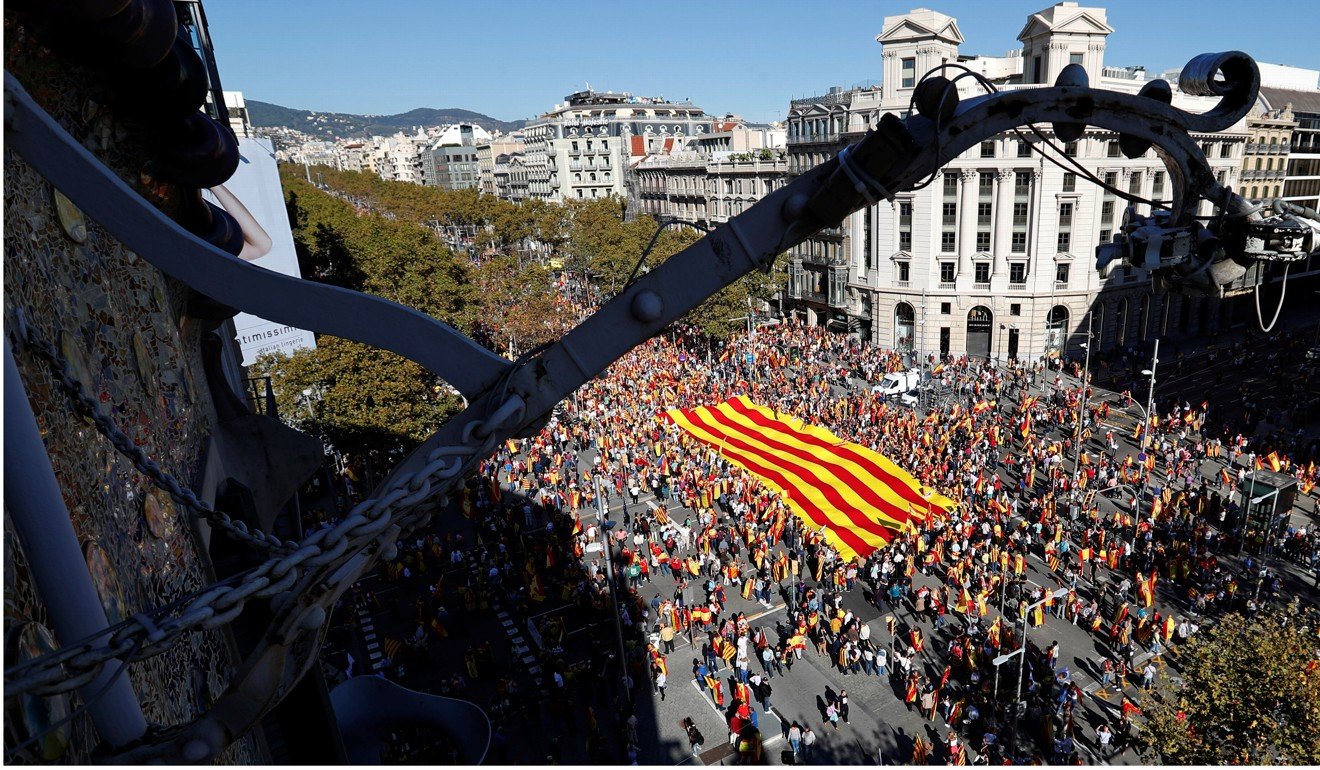
“We are all Catalonia,” proclaimed a massive banner as the crowd chanted “Prison for Puigdemont”, and “Long live Spain”.
Secessionist leader Carles Puigdemont and his regional executive was axed by the central government on Saturday, a day after Catalan lawmakers voted to declare the region of 7.5 million people a republic.
Prime Minister Mariano Rajoy also dissolved the regional parliament, and called December 21 elections for a new one.
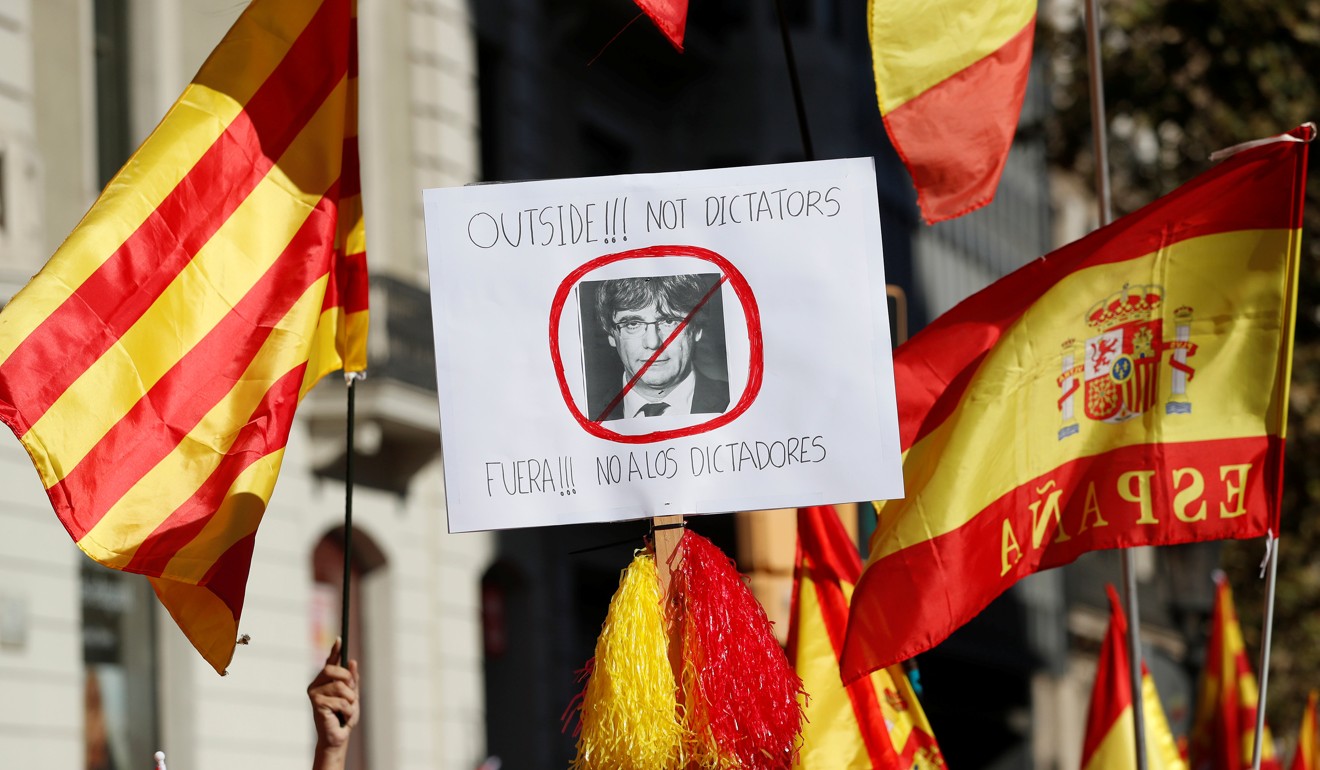
“I am enraged about what they are doing to the country that my grandparents built,” said protester Marina Fernandez, a 19-year-old student from Girona, a separatist stronghold.
In her hometown, she cannot speak out for Spanish unity or “leave my house with the Spanish flag”, she said.
As the march got under way, the deputy president of the deposed Catalan government lashed out at Madrid over what he called a “coup d’etat”.
“The president of the country is and will remain Carles Puigdemont,” the axed leader’s deputy Oriol Junqueras wrote in Catalan newspaper El Punt Avui.
Junqueras used the word “country” to refer to Catalonia, and signed off as the region’s “vice-president”.
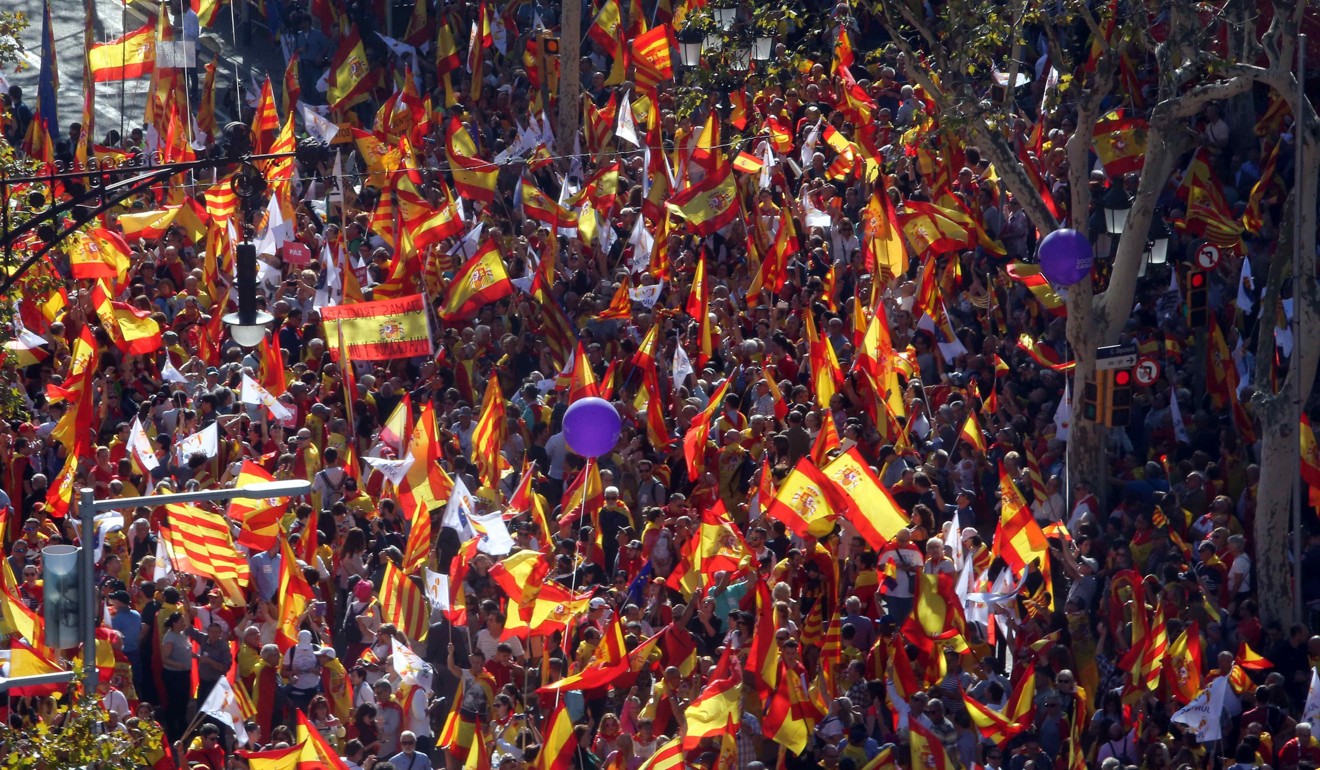
The Catalan crisis was triggered by a banned independence referendum on October 1 shunned by many, and marred by police violence.
Then on Friday, Catalan lawmakers passed a motion, by 70 votes out of 135 in the secessionist-majority regional parliament, to declare the region of 7.5 million people independent from Spain.
Rajoy responded by deposing the regional government, dissolving its parliament, and calling December 21 elections to replace them.
Deputy Prime Minister Soraya Saenz de Santamaria, was temporarily put in charge of administering the rebel region.
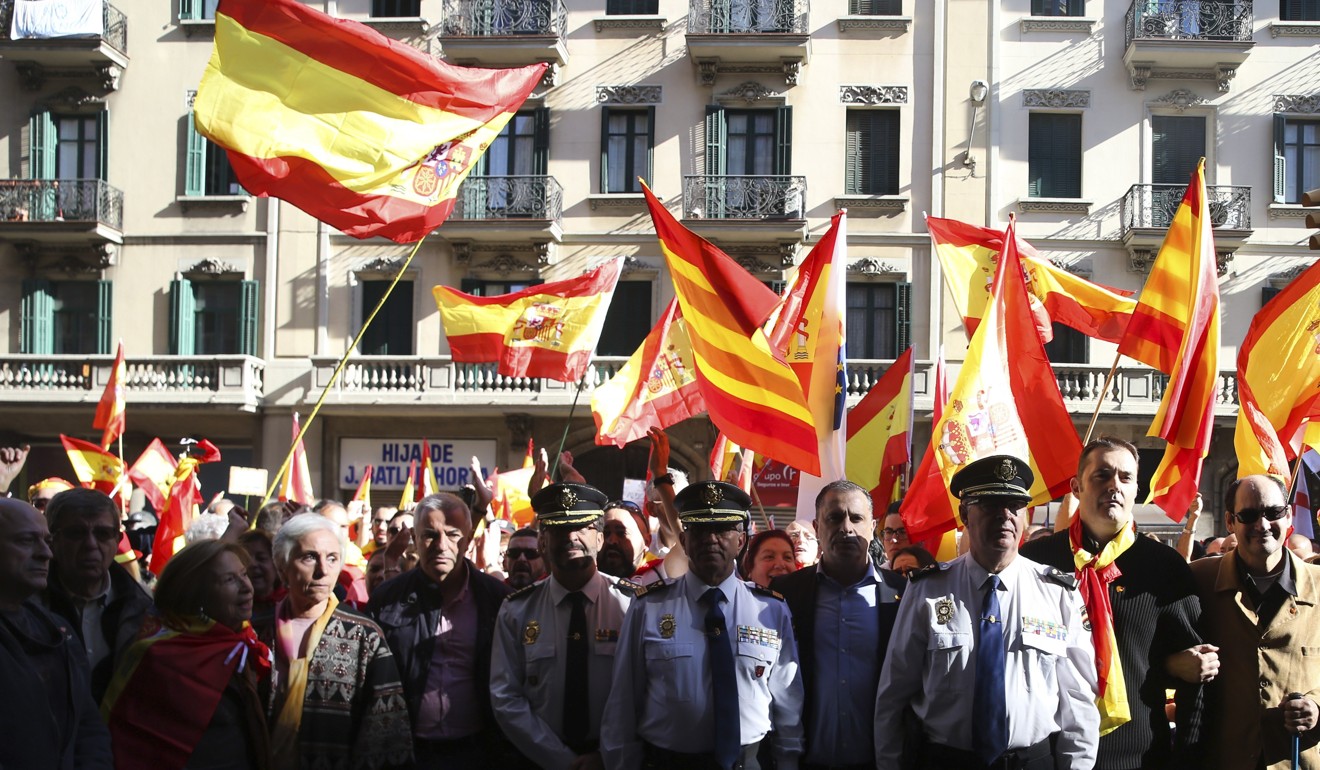
Ines Arramadas, leader of the Ciudadanos main opposition party in Catalonia, told journalists at the march that a majority of the region’s inhabitants wished to “recover our future”.
“Today the silenced majority of Catalonia returns to the streets. It once again shows, with dignity and respect, that the majority of Catalans feel Catalan, Spanish and European,” she said, a day after thousands of people took part in a similar march in Madrid.
Representatives of Rajoy’s conservative People’s Party (PP) were also at Saturday’s rally, in what for some resembled the start of an election campaign.
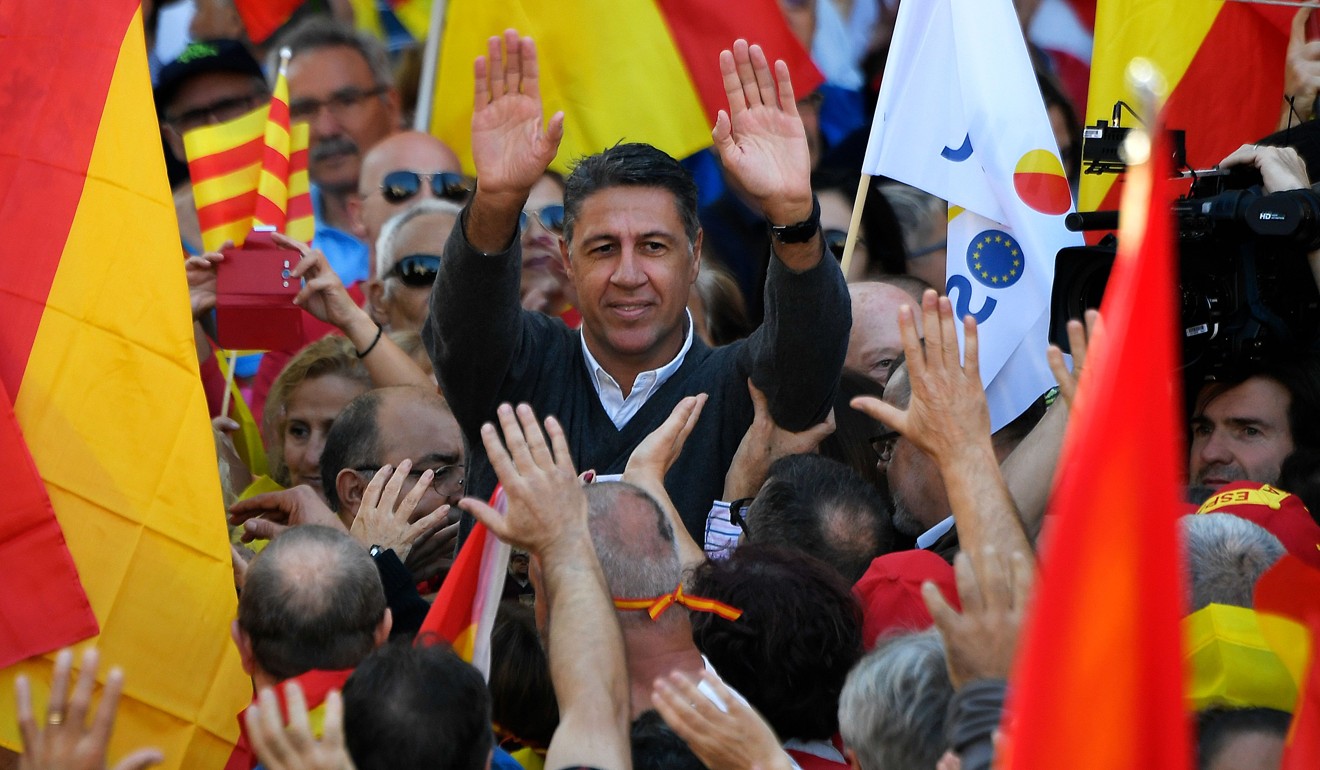
An opinion poll published in centre-right newspaper El Mundo Sunday said separatist parties would lose their majority in Catalonia’s regional parliament if elections were held today.
As prosecutors prepared to file charges of rebellion against Puigdemont next week, he called Saturday for “democratic opposition” to Madrid’s power grab – the first curtailment of regional autonomy since Francisco Franco’s brutal 1939-75 dictatorship.
Roughly the size of Belgium, Catalonia accounts for about 16 per cent of Spain’s population and attracts more tourists than anywhere else in the country.
It produces a fifth of Spain’s economic output – equivalent to that of Portugal.
Before the upheaval, Catalonia enjoyed considerable autonomy, with control over education, health care and policing.
But while fiercely protective of their language, culture and autonomy, Catalans are divided on independence, according to polls.

.png?itok=arIb17P0)